|
5/5/2022 Happy Birthday to Karl Marx. Born on May 5, 1818, and the significance of his life. By: Carlito RoviraRead NowOn May 5, 1818 in the city of Trier, Prussia, a great historic figure was born who would eventually send shock waves towards every school of thinking. Karl Marx would impact all of society, including those who served to protect the insecure class of oppressors, tyrants and exploiters, during his time. This gallant revolutionary eventually formulated ideas that would serve to provide oppressed and exploited people with a comprehensive revolutionary theory, based on the social and economic status of the working class. It was in collaboration with his most trusted comrade and friend, Friedrich Engels, that Marx was able to develop a scientific approach for examining capitalism — in order to expedite it’s overthrow. One of the greatest achievements made by Marx was his analytical conclusions of how capitalist profits are created. The capitalist class were not the lords of society because they worked harder or were smarter than anyone else. Their position was thanks to their theft of surplus value — the value of commodities above and beyond what is socially necessary to produce them. This surplus value is the fruit of unpaid labor, which becomes the nucleus of the vast wealth stolen by the capitalists. The rapidity of production that resulted meant that abundance tended to cause scarcity, when overproduction caused job layoffs thus making commodity goods unaffordable for workers, while capitalists were only interested in satisfying themselves with a lust to maximize the rate of surplus value. Once these commodity goods circulated in the market and sold the already created surplus value would then be realized as profits. And because capitalism collectivized commodity production with concentrations of workers organized for a distribution of labor, a socialization of production was introduced. The magnitude of production gradually reached levels never before seen in human history. The capability of the productive forces meeting the needs of everyone in this society several times over revealed why poverty and want are an absurdity that is inherited in this system. This is a phenomenon that shall inevitably compel working people to rebel. In the words of Karl Marx: “The essential conditions for the existence and for the sway of the bourgeois class is the formation and augmentation of capital; the condition for capital is wage-labour. Wage-labour rests exclusively on competition between the labourers. The advance of industry, whose involuntary promoter is the bourgeoisie, replaces the isolation of the labourers, due to competition, by the revolutionary combination, due to association. The development of Modern Industry, therefore, cuts from under its feet the very foundation on which the bourgeoisie produces and appropriates products. What the bourgeoisie therefore produces, above all, are its own gravediggers. Its fall and the victory of the proletariat are equally inevitable.“ It was this analysis that led Marx and Engels to become adamant and unforgiving in their critiques of Political Economy, that is, the deceitful methods and hypocritical overtures used by the rulers to justify their parasitic behavior in the brutal exploitation of working people. This analysis was also central in Marx’s world outlook that defined his conceptions in philosophy, ideology, politics, history, culture, but most important of all his attitude towards the antagonistic relationship between opposing social classes. KARL MARX’S TREMENDOUS IMPACT ON THE WORLDMarx’s ideas impacted progressive and revolutionary movements on every continent throughout the 20th Century, long after his death. Thanks to the political leadership of the Russian V.I. Lenin, Marx’s ideas guided the developments of the Soviet Union, the world’s first experiment in socialist planned economy. Russian revolutionary leader, V.I. Lenin, at the Marx & Engels monument in the Soviet Union, 1918. For the most part Marx’s theories proved consistent with his expectations as workers in industrialized capitalist countries rose up in fierce rebellion while in the plundered and colonized regions of Africa, Asia and Latin America capitalist imperialism was challenged by the fury of national liberation struggles. It is no wonder why revolutionary figures like Amilcar Cabral, Celia Sanchez, Ho Chi Minh, Claudia Jones, Madame Nguyễn Thị Định, Fidel Castro Ruz, Patrice Lumumba, Nguyễn Thị Bình, Ernesto Che Guevara, Mao Zedong, Steve Biko, Kim Il-Sung and many others, resorted to embrace Marxism and sought ways to apply it’s many lessons to their respective realities. Contained in Marx and Engel’s earliest writings like the Philosophical & Economic Manuscript, The Communist Manifesto, The Origins of the Family, Private Property & the State, The Civil War in the United States, Utopia and Scientific Socialism, On Religion, Wage, Price and Profit, along with the rest of their vast collection of writings, are many valuable lessons which are indisputably applicable in our experiences today. That is why, to this day, 135 years after his death, Karl Marx continues to be despised and dreaded by the capitalist rulers. The classic writing that continues to haunt the ruling class. In the United States, African American figures like Cyril Briggs, Harry Haywood, W.E.B. DuBois, Paul Robeson, and many more, were able to see how the Black liberation struggle had natural affinities with the fundamental analysis of Marxism. By the 1960’s-70’s Marxism’s most notable writing “The Communist Manifesto” became one of several political education study requirements for members of the Black Panther Party and the Young Lords. KARL MARX & THE CIVIL WAR IN THE UNITED STATESOne of the most notable of Marx’s political involvements was his intervention in the events of the Civil War in the United States. African chattel slavery in the U.S. was the most lucrative and most brutal in all of history. It was a system that served as the economic impetus for capitalism and allowed it to grow into the colossal wealth it comprises today. Through his correspondence with President Abraham Lincoln and through his column in the New York Tribune Karl Marx sought to build pressure by being firmly insistent about the need for a decree that made slavery technically illegal. On January 1, 1863 Lincoln signed the Emancipation Proclamation. This monumental document became the legal precedent for recruiting and arming former slaves. Although Lincoln’s motives were of military consideration the Emancipation Proclamation hastened the outcome of the war and would eventually guarantee the defeat of the Southern Slavocracy. Sectors of the British ruling class who had vested economic interest in the South’s slave economy had desired to militarily intervene in support of the Confederacy. Thanks to Karl Marx’s leadership in the powerful International Workingmen’s Association of England the British rulers were prevented from coming to the aid of the Southern slave owning class. Karl Marx’s leading role mobilizing the English working class to prevent the prolongation of African chattel slavery in the United States was in every objective sense a profound act of solidarity to the African American people. Marx’s convictions were firm, it is why he stated, “Labor in the white skin can never free itself as long as labor in the black skin is branded.” MARXISM MORE RELEVANT TODAY THAN EVER BEFOREThe revolutionary contributions of Karl Marx and Friedrich Engels continue to be the target of bourgeois philosophers, economists and historians. Ruling class scholars demonstrate their contempt for working class people by falsely accusing Marxism of being “totalitarian” or by asserting that it is filled with nothing but “unrealizable fantasy,” etc. Similarly, there are those even within the predominantly white socialist left of this country who claim, dripping with social arrogance, that Marxism and the nationalism of oppressed people are contradictory, and can never be reconciled to complement one another, in the fight against the capitalist rulers. Others in the more conservative sectors of the national movements, strictly concerned with the narrowest, cultural sentiments of nationalism, mistakenly assert that Marxism is a European or “white thing” and is therefore irrelevant to national liberation struggles. Both of these views only serve to promote the reactionary notions of white supremacy and anti-communism. Objective material facts prove the opposite. Under the intense circumstances of imperialism today all oppressed entities have a definite class relationship to capitalism. It is a phenomenon which no one can escape. People of color in the United States are the most exploited, persecuted communities. They are victims of police violence and imprisonment. If anyone is to have a greater stake and say in the downfall of this vile system and the establishment of a new society, it is those who have been historically on the bottom of social and economic disparity. It is an absurdity and a reflection of how deeply embedded white privilege is in the culture to believe that mastering Marxism requires that people of color dismiss their self-identity as historically constituted national groupings within the broader population. This distortion of the meaning of Marxism dismisses the necessity of socialism coming about on equal terms and has resulted in preserving bourgeois traditions disguised under the mantle of upholding working class “unity.” The teachings of Karl Marx and Friedrich Engels are today more relevant to the liberation struggles of Black, Latino, Asian, Arab and Indigenous people than ever before, especially because of the super-exploitation and increasing numbers of these national groups coming into the U.S. working class. The capitalist ideological institutions like the church, the mass media, public education, etc., will implicitly and explicitly encourage us to accept what exist, that is, to be submissive to the racist injustices of the police state and the rule of wealthy exploiters. It was precisely the social class oppression, bringing so much suffering in our world that Karl Marx selflessly devoted his entire life to condemn and worked towards undoing. If Karl Marx were alive today, he would have surely been part of the movements condemning the persecution of immigrant and undocumented families in the United States, the racist police killings of African Americans, the U.S.-backed Israeli occupation of Palestine as well as the U.S. colonization of Puerto Rico. It is Marx’s uncompromising devotion to revolution on behalf of the workers and oppressed people of the world that explains the ruling class’s utter hatred for the conceptions he developed, including the relevance of Marxism to every question facing the world today. The rulers cannot bear the thought of a well-articulated analysis that calls for an end to capitalism and points towards the only direction for bringing about the complete emancipation of the human race. Karl Marx tomb at Highgate Cemetery, London, England. AuthorCarlos “Carlito” Rovira is a Young Lord for life who continues to fight for socialism. Republished from Carlito's blog. Archives May 2022
4 Comments
RR
5/6/2022 07:47:36 pm
'...there are those even within the predominantly white socialist left of this country who claim, dripping with social arrogance, that Marxism and the nationalism of oppressed people are contradictory...'.
Reply
Charles Brown
5/8/2022 01:37:49 pm
Marx links the battle for a normal working day to the battle against outright slavery: “in the United States of North America, every independent movement of the workers was paralysed so long as slavery disfigured a part of the Republic. Labour cannot emancipate itself in the white skin when in the black it is branded.” (p. 329)
Reply
Charles Brown
5/8/2022 01:49:48 pm
https://www.marxists.org/archive/lenin/works/1916/jul/x01.htm
Reply
Charles Brown
5/8/2022 01:51:54 pm
Right of oppressed _nations_
Reply
Leave a Reply. |
Details
Archives
July 2024
Categories
All
|
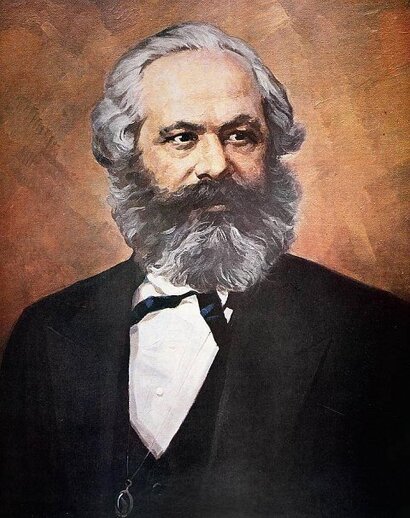
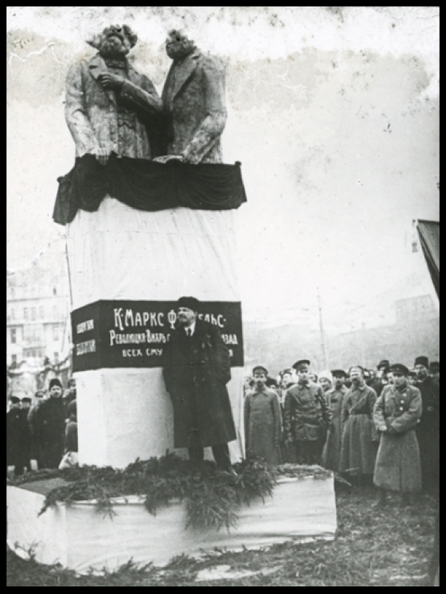
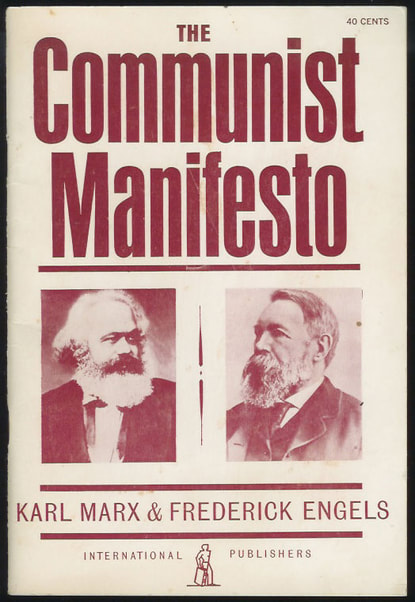
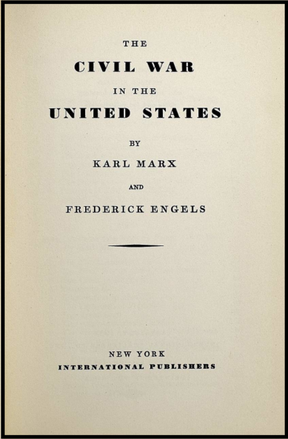
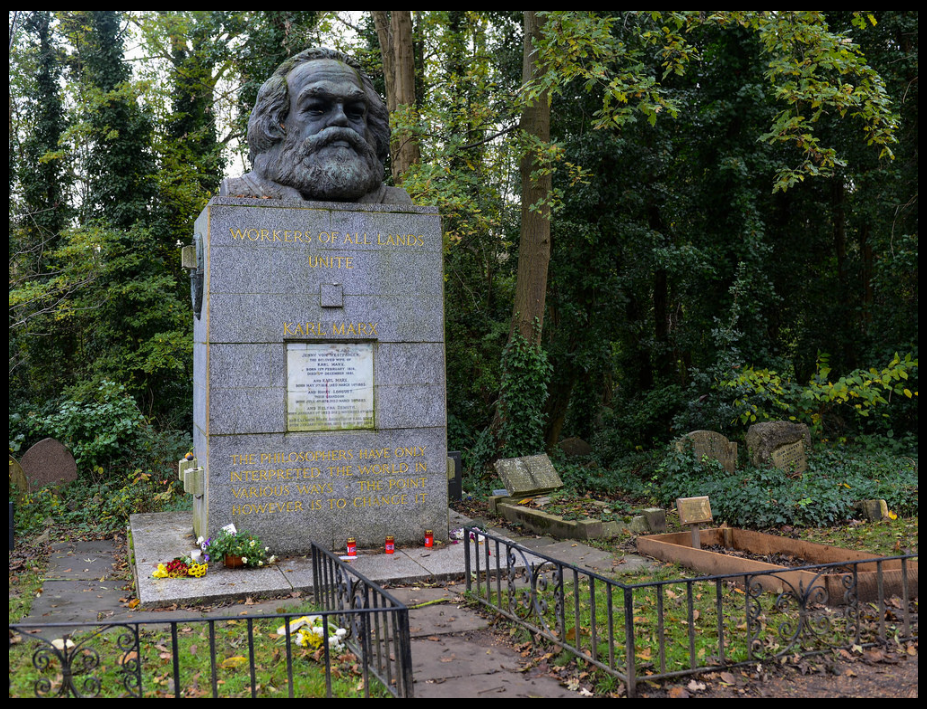
 RSS Feed
RSS Feed